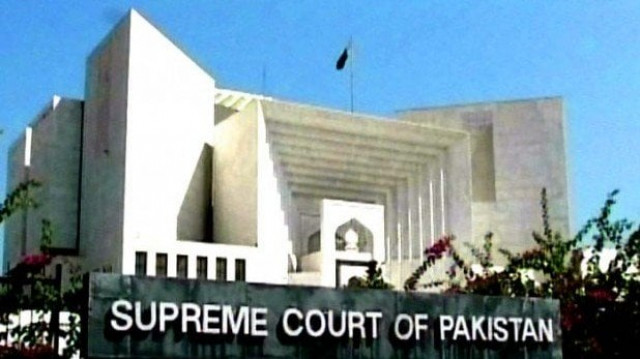SC sets aside CM’s order on VC hiring
Says Usman Buzdar’s decision not to appoint an eligible candidate as VC amounts is illegal

The Supreme Court has declared that Punjab Chief Minister Usman Buzdar’s decision not to appoint an eligible candidate as the vice chancellor of the University of Agriculture Faisalabad amounts to an illegal, arbitrary, capricious and unbridled exercise of discretion and cannot be countenanced.
"The reasons provided by the chief minister show an exercise of pick and choose with a predetermined mind and a conscious and deliberate effort appears to have been made to contrive reasons to appoint a person lower on merit and deprive a person better qualified, higher on merit and obviously more suitable for the post in question," said a 23-page judgment authored by Justice Ijazul Ahsan.
Justice Ahsan was part of a three-judge bench – headed by Chief Justice of Pakistan Gulzar Ahmed – which overturned a Lahore High Court (LHC) verdict. A division bench of the LHC had earlier upheld the CM’s decision not to appoint the petitioner –Dr Iqrar Ahmad Khan – as the VC of the university.
"This act of the chief minister amounts to an illegal, arbitrary, capricious and unbridled exercise of discretion and cannot be countenanced especially so when the search committee, comprising credible academicians, independent members and representatives of the government itself with impeccable credentials, [had] placed the appellant on top of the merit list," it added.
The judgment said not only was the petitioner No 1 on the merit list of the written exams, but he was also given the highest marks in the interview. However, the chief minister had appointed respondent Dr Muhammad Ashraf who had not performed well in the interview.
It said in appointment of other people as VCs, the pendency of audit paras has not been considered as a material and determining factor reflecting on their administrative ability or financial controls.
“We do not see why the same standard was not applied in the case of the appellant and that too without due application of mind and examination of the documents or material attributable to alleged lax financial controls of the appellant. Further, he was never confronted with the same and was virtually condemned unheard and behind his back," it said.
Justice Ahsan said it was evident that the appellant was denied appointment unlawfully and arbitrarily and, reasons were contrived to furnish a basis for predetermined decision which fail to stand the test for judicial scrutiny.
“It was precisely for this reason that in our order dated 28.04.2018, while retaining the discretion of the government to appoint a person lower on merit we had circumscribed and structured the exercise of discretion by making it obligatory on the authority to record cogent reasons with a rider that such reasons will be justiciable.
"The impugned order not only lacks bona fide and transparency but also assign reasons which are neither cogent nor show any consistency in executive making," it added.
The judgment also raised serious questions on the LHC’s decision to uphold the executive appointment without considering all aspects.
The court said the LHC division bench has erroneously and for reasons best known to it held that the court cannot adjudicate upon the reasons given by the chief minister.
"This finding in our humble view constitutes abdication of jurisdiction and power of judicial review of administrative actions by the high court which is the foundation and hallmark of jurisdiction of the high court under Article 199 of Constitution.
“Further, we had clearly and categorically held in our order dated 22.04.2018 that the reasons recorded by the appointing authority will be justiciable.
"In the presence of such clear and categorical findings recorded by this court, we are unable to comprehend how a finding of this nature could be recorded by the learned high court,” it said.
The SC said it had been unable to find the basis, logic, reason or rationale behind the view taken by the LHC that the reasons recorded by the appointing authority do not have to undergo judicial scrutiny.
It said the SC’s earlier verdict was clearly on a question of law, enunciated a principle of law and was binding on the LHC in terms of Article 189 of the Constitution"
“That fact has unfortunately escaped the notice of the division bench of the high court. Further, it is settled law that, even the obiter dicta of this court is binding on the high court,” said the judgment.



















COMMENTS
Comments are moderated and generally will be posted if they are on-topic and not abusive.
For more information, please see our Comments FAQ